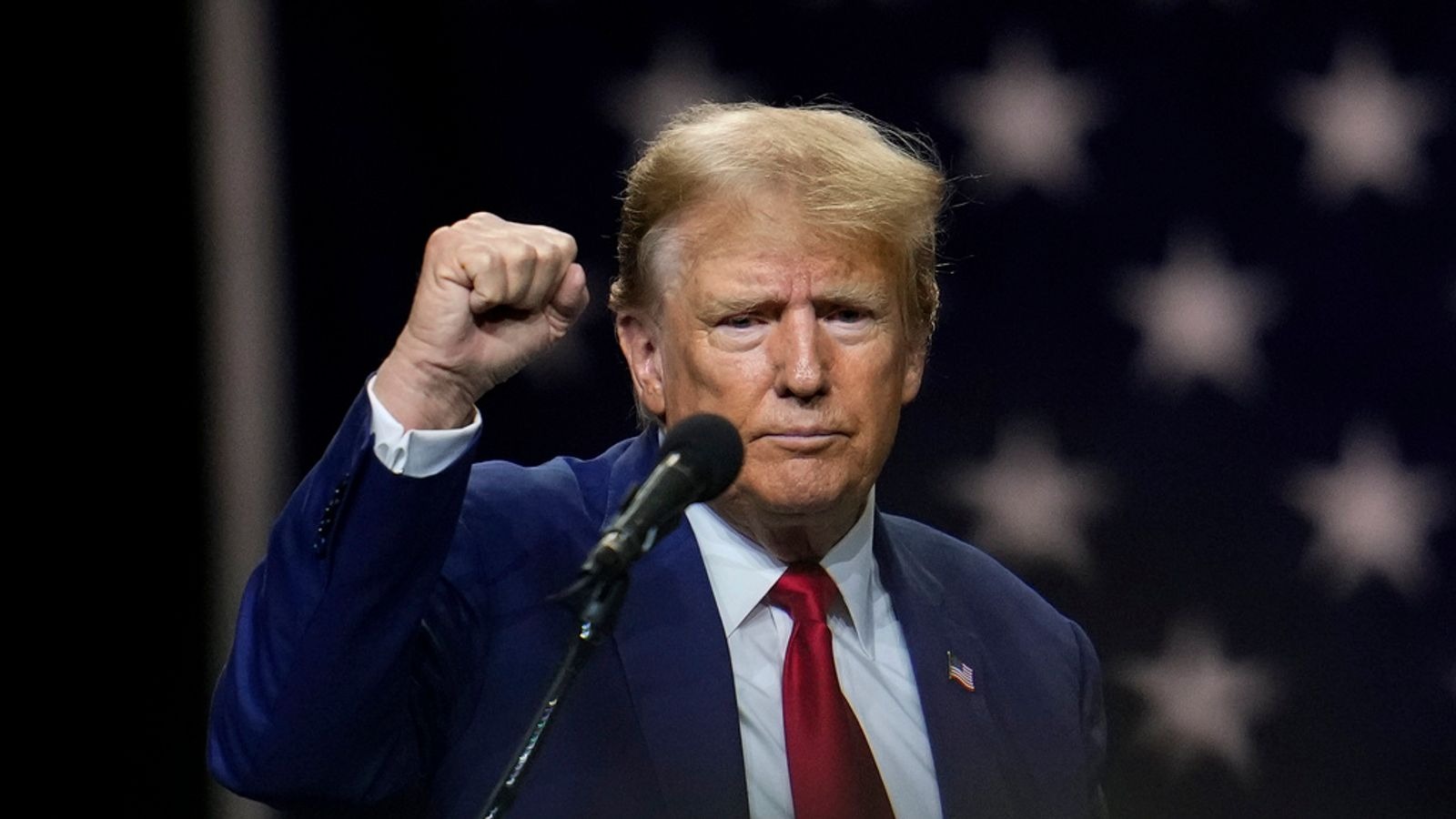The Supreme Court’s recent decision regarding Donald Trump’s eligibility to run for president under the 14th Amendment has significant implications for the upcoming election.
The court’s unanimous ruling overturned the Colorado Supreme Court’s decision, indicating a strong inclination to restore Trump to the ballot.
However, the justices were divided on the rationale for the decision. The majority, composed of conservative justices, argued that congressional legislation must enforce Section 3 of the 14th Amendment, which prohibits elected officials who engage in insurrection from holding office again.
On the other hand, the liberal justices and Justice Amy Coney Barrett, in her concurrence, disagreed with this interpretation, believing that federal law is not necessary and that the Colorado decision would lead to chaotic inconsistencies in presidential ballot access across states.
Trump (Credits: Arise News)
Despite their differences, the justices came together on the result, which Chief Justice John G. Roberts Jr. likely viewed as a priority. However, the political divisions within the court were evident, with underlying disagreements just beneath the surface.
This decision marks a second substantial victory for Trump, following last week’s decision to review the rejection of his claim of immunity from prosecution for the events of January 6th.
The court’s decision to delay the proceedings regarding Trump’s immunity from prosecution could significantly impact the election, as a criminal conviction would likely sway many voters against him.
This delay, coupled with the court’s quick action in clarifying the electoral landscape for Super Tuesday, raises questions about the court’s motivations and potential impact on the election.
The Supreme Court’s recent decisions regarding Trump’s eligibility and immunity could have a profound impact on the upcoming election, potentially shaping the course of American politics for years to come.
